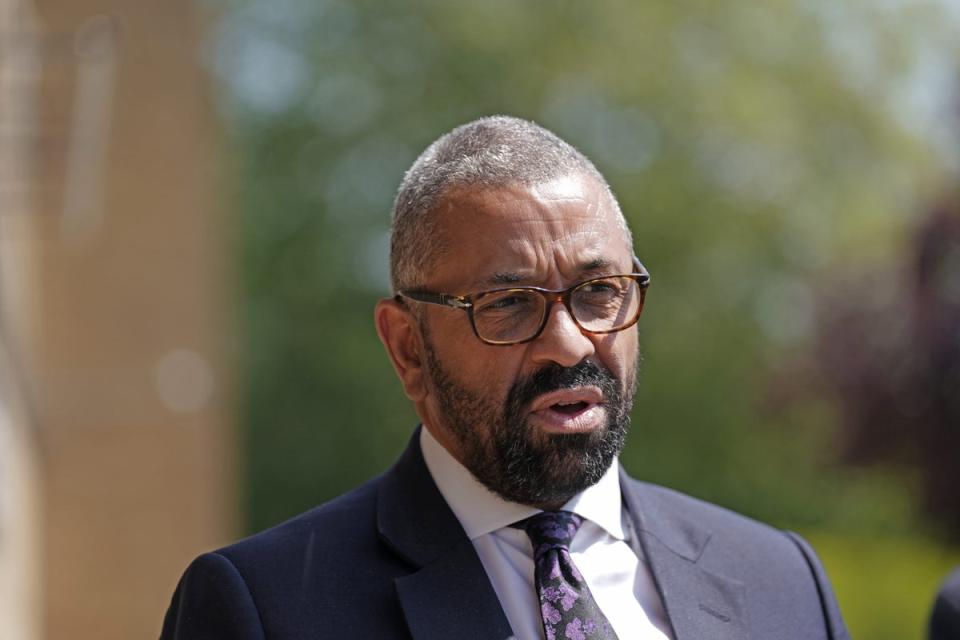Huge drop in health and social care worker visa applications could ‘destabilise’ sector, leaders warn
The number of applications from international workers wanting to come to the UK to fill jobs in the health and social care sector have plummetted following Home Office changes, data shows.
Health and social care leaders have warned that a sudden lack of staff would “destabilise” the sector and lead to worse care for the elderly.
Many social care workers could be put off coming to the UK as they are no longer able to bring partners or children with them as part of their visa. In addition, care firms in England now need to be regulated in order to sponsor visas for workers.
New provisional data released by the Home Office on Wednesday showed that the number of applications to come to the UK on a health and care skilled worker visa fell by 76 per cent in the first four months of this year, compared with the equivalent period in 2023.
From January to April last year there were 50,900 applications for the visa, but this fell to 12,400 in that period in 2024.

The number of dependants included in these applications fell by 6 per cent from 59,300 in January to April 2023 to 55,700 in the same period this year.
Professor Martin Green, chief executive of Care England, said: “Care England warned the government that this policy risked reducing applicants for care worker roles at a time when they are desperately needed. Today’s figures show this has indeed been the case.”
He added that the government will now have to work “extremely hard” to attract British people to work in the social care sector. Professor Green warned that promises to improve pay, conditions and meaningful career progression had “not been achieved”.
Anna Hemmings, CEO of the Association of Directors of Adult Social Services, said that there are still at least 150,000 vacant jobs in the sector. She added: “The shortage has real world impacts and can mean many of our older and vulnerable adults miss out on vital support and care they badly need.”
Vic Rayner, CEO of the National Care Forum, said that the new government rules “run the risk of shutting off a vital lifeline for people who need care and support.”
She added: “International workers make a hugely important and valuable contribution to the delivery of social care across all parts of the sector. We know that even with their contribution there are still significant vacancies within the sector.”

Dr Jane Townson, CEO of the Homecare Association, said that the sharp drop in care visas “threatens to destabilise homecare provision at a time of critical need”.
The membership body said changes to visa rules were making it harder for homecare providers to meet the criteria needed to bring international staff to the UK. The requirement to provide evidence of guaranteed hours of work is difficult to meet, it said, because most councils and NHS contracts do not guarantee the number of hours that they buy from homecare providers.
Caroline Waterfield, director of employment at NHS employers, said that recruitment and retention of more domestic workers “cannot happen overnight”.
The number of other skilled worker visa applications rose year-on-year, with 29,200 main applicants in the first four months of 2024, up 41 per cent from 20,700 in the same period in 2023.
Applications for the sponsored study visa were down 12 per cent for the first four months of the year, with dependants applications down by 79 per cent.
Responding to the figures, home secretary James Cleverly said that his plan to “deliver the largest-ever cut to legal migration in our country’s history is working”.
He added: “This monthly data is the most up-to-date picture of visa levels, showing that on current trajectories legal migration continues to fall across key routes.”
Shadow immigration minister Stephen Kinnock described the government as “scrambling around, desperately trying to clean up the mess they made”.
The government is braced for fresh figures from the Office of National Statistics on Thursday which are unlikely to show a significant reduction in net migration levels.

 Yahoo News
Yahoo News 
